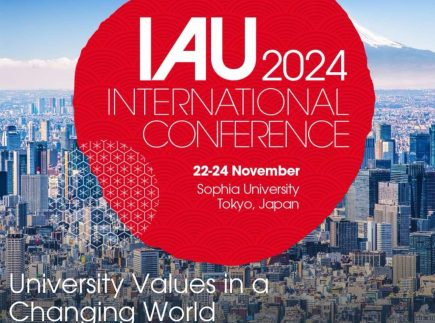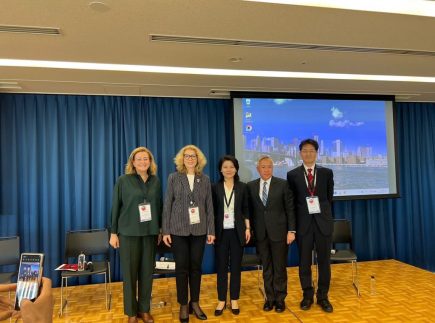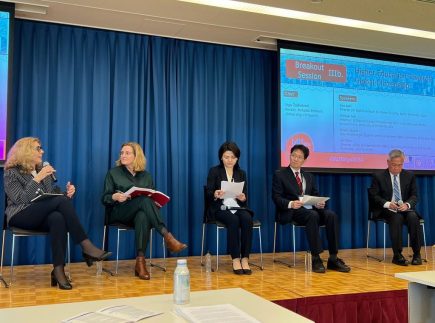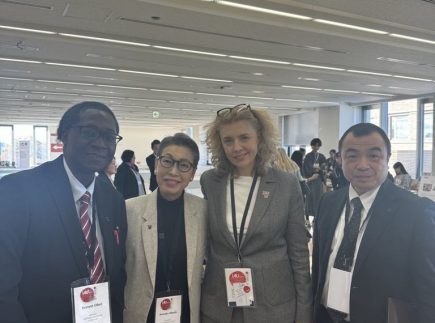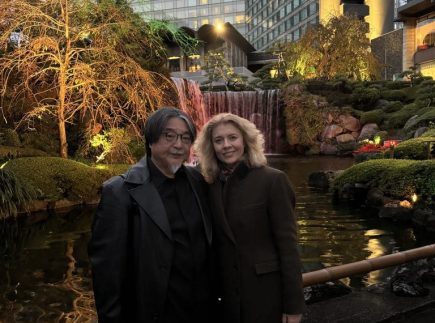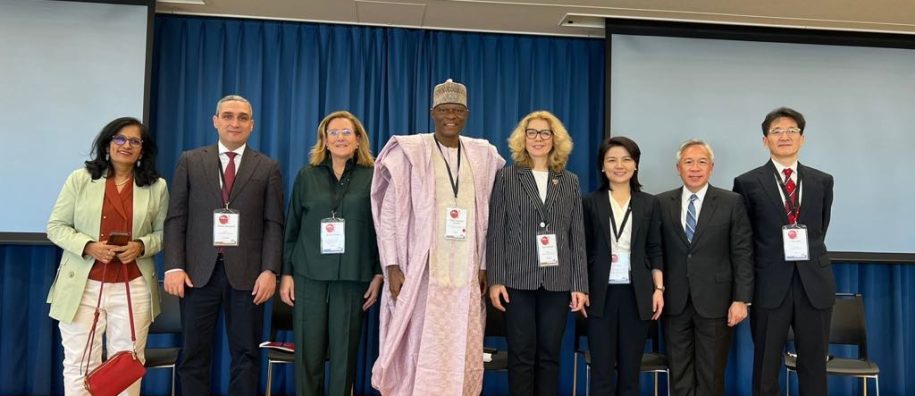
University values have been inseparable from societal value systems since the establishment of universities. Do higher education institutions worldwide, representing various cultures and traditions, share fundamental university values? Are academic values, such as autonomy, academic freedom, and research integrity, at risk of being undermined by political pressures? To what extent do values play a decisive role in maintaining the integrity and trustworthiness of universities within society?
These critical questions were explored by global higher education leaders during the International Association of Universities (IAU) Annual Conference, "University Values in a Changing World" held November 22–24 at Sophia University in Tokyo, Japan.
More than 30 speakers from higher education institutions and international organizations across Europe, America, Australia, Asia, and Africa delivered presentations, shared case studies, and participated in thematic discussions. The conference brought together over 350 participants from approximately 80 countries.
Prof. Dr. Inga Žalėnienė, Rector of Mykolas Romeris University (MRU) and Vice President of the IAU, chaired a session focusing on the role of higher education in fostering global citizenship.
The session participants examined how universities can deliver the best outcomes in international, intercultural, and global learning for future generations amidst increasing geopolitical tensions and a more divided world.
"As representatives of the world's universities, we have a unique opportunity to discuss how higher education can lead in fostering global citizens-individuals who not only comprehend the complexities of our interconnected world but also possess the skills, empathy, and motivation to make a difference," - prof. Dr. Žalėnienė stated in her opening remarks.
The Rector emphasized that the importance of global citizenship has grown significantly in response to global challenges in recent years. The United Nations defines global citizenship as the social, political, environmental, and economic actions of globally minded individuals and communities.
"Promoting global citizenship in the context of sustainable development will enable individuals to take social responsibility and act not just for their benefit but for the well-being of all societies," Prof. Dr. Žalėnienė noted.
During the session, scholars from Spain, China, Japan, and the United States shared their insights on how universities can equip young people with the best international, intercultural, and global learning experiences, enabling future generations to tackle complex challenges and seize emerging opportunities.
Summarizing the session’s conclusions, Prof. Dr. Žalėnienė stated: "Looking ahead, it is clear that global citizenship education must adapt to new challenges, including the rise of artificial intelligence, environmental crises, and geopolitical shifts, while being firmly grounded in shared values of equity and justice."
The International Association of Universities (IAU), established in 1950 under UNESCO's auspices, represents approximately 600 educational institutions worldwide. The IAU conducts international surveys, conferences, training programs, and various initiatives aimed at promoting diversity and internationalization in higher education.
